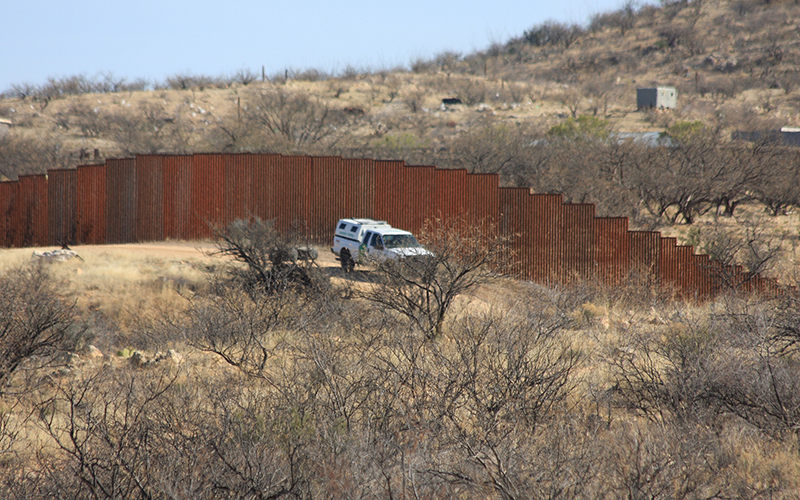
The Department of Homeland Security on Tuesday said it was invoking its right under a 1996 law to exempt itself from environmental and other regulations that might hinder construction of the first part of President Donald Trump’s promised border wall. (Photo by J.N.Stuart/Creative Commons)
WASHINGTON – The Department of Homeland Security invoked a waiver of environmental and other regulations Tuesday to speed construction of border projects, a decision that critics said will “endanger wildlife and people.”
DHS announced that it would exercise its authority under a 1996 law to exempt itself from “a variety of environmental, natural resource, and land management laws” in the San Diego sector as it continues to work towards development of new physical barriers there.
That brought a sharp response from the Center for Biological Diversity, which reported in a recent study that President Donald Trump’s call for a wall stretching the length of the 2,000-mile border with Mexico would threaten more than 90 species, including the Quino checkerspot butterfly and coastal California gnatcatcher in the San Diego sector.
“This isn’t just a wall they’re in a rush to build. It’s roads, lighting and all of the infrastructure that comes with it,” Brian Segee, an attorney with the center, said in the statement. “All of this without any environmental review or public input. It’s a travesty and it has to
be stopped.”
The center filed suit in June to block construction of a border wall challenging “the Trump administration’s failure to perform any environmental analysis or release any information about the project.”
But while the waiver allows federal officials to skirt environmental regulations, officials with the Customs and Border Protection office in the San Diego sector said that does not mean they will.
The agency will continue to survey sites for environmental and cultural significance, and will consult with federal and local organizations to assess the potential impact on resources and “develop appropriate mitigation strategies” as it moves forward on border projects, a spokesman said.
“Notwithstanding the waiver, CBP will implement sound environmental practices as part of the projects covered by this waiver,” Ralph DeSio, the sector’s public affairs officer, said in an email Tuesday. “CBP is committed to the protection of the environment in areas in which we work and live.”
But DeSio said the waiver is needed to maintain a construction schedule that calls for geological surveys to begin this month in preparation for a fence.
The announcement came just days after the House included $1.57 billion in an unrelated defense funding bill to begin work on the first sections of a border wall, with projects in Texas and California. That bill has yet to be taken up by the Senate.
DeSio said prototype construction could start as soon as this December, but the primary fence replacement would not start until March 13.
Segee accused the president of trying “to scare people into letting him ignore the law.”
“Trump’s wall is a divisive symbol of fear and hatred, and it does real harm to the landscape and communities,” he said, in the center’s statement.
Arizona Rep. Raul Grijalva, D-Tucson, emphasized that these are not just minor regulatory requirements the department is looking to skirt, they are “monumental protections that have been essential to preserving our country’s natural heritage and safeguarding public health.”
“The Department of Homeland Security’s mission statement clearly states: ‘With honor and integrity, we will safeguard the American people, our homeland, and our values,'” Grijalva said in a statement released by his office. “Yet nothing falls farther from this mission than their actions in waiving numerous environmental laws in an attempt to build Trump’s border wall.”
But Rep. Paul Gosar, R-Prescott, applauded the move, arguing in a prepared statement that the border wall is exactly what the country needs.
“The border wall is absolutely vital to our national security. It’s a strategic move that brings us closer to cracking down on illegal immigration,” Gosar’s statement said. “Obama-era amnesty policies weakened the rule of law in our country, and it’s time we reverse the damage and secure our borders.”